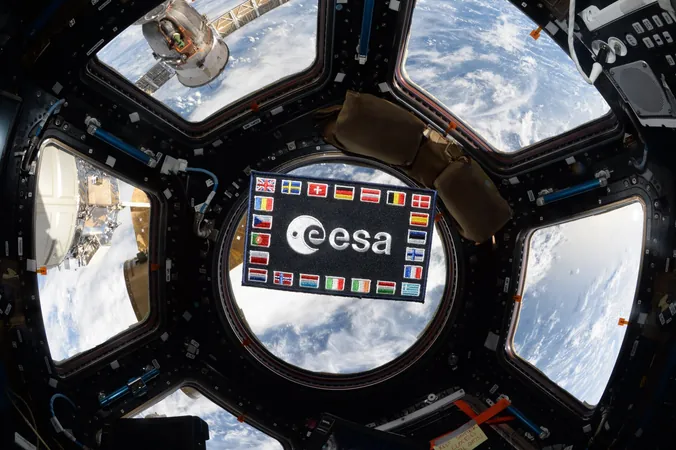
European Space Agency Plans Ambitious Reusable Rocket to Enhance Launch Capabilities!
2024-11-25
Author: Wei Ling
Overview of ESA's New Initiative
In a bold move to revolutionize its launch capabilities, the European Space Agency (ESA) has begun to explore alternative launch contractors with a significant focus on developing a reusable rocket. This initiative aims to create a launcher that can carry 60 tonnes to low Earth orbit (LEO), a requirement that could reshape the landscape of European space exploration.
Details of the Tender
On November 20, ESA published a tender for an open competition detailing its European 60T LEO Reusable Launch System Pathfinder initiative. Although the document was removed later that same day, it highlighted the pressing need for such a launch system to support "critical European space exploration needs beyond LEO" and to tap into the burgeoning market opportunities, including mega-constellations that are fast becoming prevalent in the aerospace industry.
ESA's Commitment
An ESA spokesperson clarified that, despite the premature release of the tender, the agency is committed to moving forward with this initiative. This marks a pivotal moment for Europe, as the competition in the space launch market intensifies globally.
Current Market Landscape
Currently, only two rockets are capable of delivering 60 tonnes or more to LEO: SpaceX's Falcon Heavy and NASA's Space Launch System (SLS). However, the landscape is rapidly evolving, with Blue Origin’s upcoming New Glenn rocket set to debut soon, promising a payload capacity of 45 tonnes. Meanwhile, SpaceX’s Starship, still undergoing rigorous testing, aims to deliver more than 100 tonnes, pushing the boundaries of current capabilities.
Global Competition
Adding to the mix is China's new Long March 9, expected to hit the market around 2033, which shares similarities with the Starship and intends to match its ambitious payload capacity.
Conclusion
This strategic move by ESA not only emphasizes the urgency of establishing a reliable and robust reusable launch infrastructure but also aims to enhance Europe's competitiveness in the global space race. With developments happening at such a rapid pace, industry experts and space enthusiasts alike are eagerly watching to see how these initiatives unfold, potentially reshaping the future of space exploration. Stay tuned for more updates as ESA charts its path through the cosmos!



 Brasil (PT)
Brasil (PT)
 Canada (EN)
Canada (EN)
 Chile (ES)
Chile (ES)
 España (ES)
España (ES)
 France (FR)
France (FR)
 Hong Kong (EN)
Hong Kong (EN)
 Italia (IT)
Italia (IT)
 日本 (JA)
日本 (JA)
 Magyarország (HU)
Magyarország (HU)
 Norge (NO)
Norge (NO)
 Polska (PL)
Polska (PL)
 Schweiz (DE)
Schweiz (DE)
 Singapore (EN)
Singapore (EN)
 Sverige (SV)
Sverige (SV)
 Suomi (FI)
Suomi (FI)
 Türkiye (TR)
Türkiye (TR)